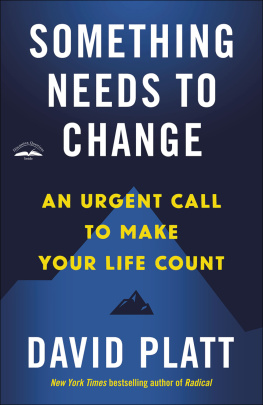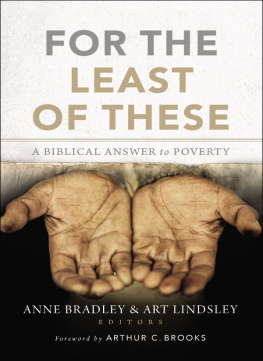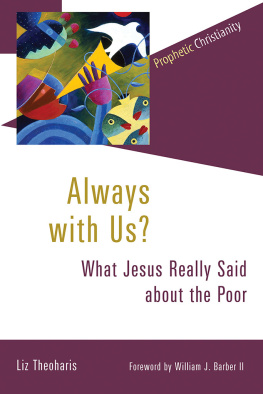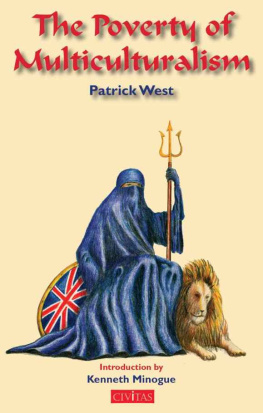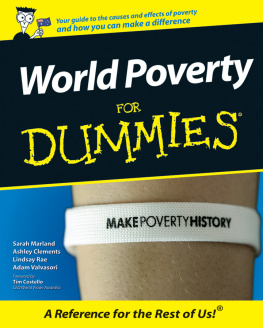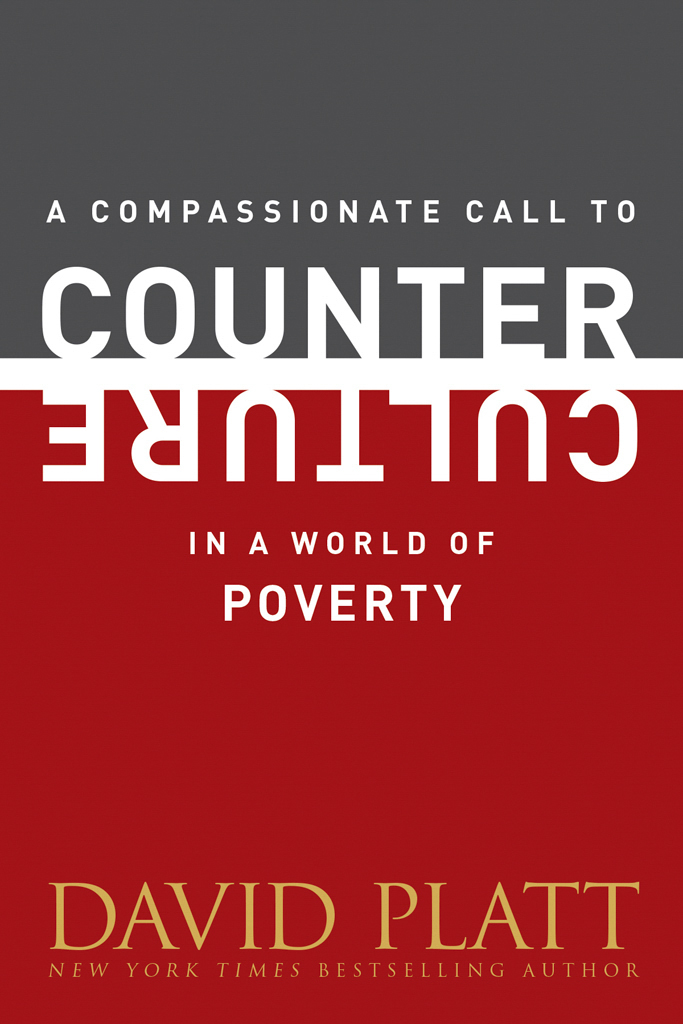Visit Tyndale online at www.tyndale.com.
TYNDALE and Tyndales quill logo are registered trademarks of Tyndale House Publishers, Inc.
A Compassionate Call to Counter Culture in a World of Poverty
Copyright 2015 by David Platt. All rights reserved.
Designed by Dean H. Renninger
Unless otherwise indicated, all Scripture quotations are taken from The Holy Bible, English Standard Version (ESV), copyright 2001 by Crossway, a publishing ministry of Good News Publishers. Used by permission. All rights reserved.
Scripture quotations marked NIV are taken from the Holy Bible, New International Version, NIV. Copyright 1973, 1978, 1984 by Biblica, Inc. Used by permission. All rights reserved worldwide.
ISBN 978-1-4964-0499-2 (sampler). Order full product under ISBN 978-1-4143-7329-4.
Build: 2014-12-19 09:14:53
Dear Reader,
I am increasingly burdened by the current climate in our culture and in the church on prevailing social issues. Battles are raging today over issues such as sexuality, marriage, poverty, sex trafficking, abortion, orphan care, racism, immigration, and religious liberty. I believe we have a deep need to consider how Christ compels us to respond to each of these issues in the culture around us.
Our zeal for some social issues may be applauded, while our stand on other, more controversial issues will bring criticism. Either way, we must not be content to sit down and stay quiet. Our goal is neither comfort in nor approval from the surrounding culture. We must stand up and speak out. However, even as we respond to these issues, I believe we are in danger of losing sight of what the main issue is. Maybe better stated, we are in danger of losing sight of who the main issue is.
What if the main issue is not poverty or sex trafficking, homosexuality or abortion? What if the main issue is God? More specifically, what if the main issue is the glory of God revealed in the gospel? And what might happen if we made him our focus instead? In a world marked by sexual immorality and sex slavery, the abandonment of children and the murder of children, racism and persecution, the needs of the poor and the neglect of the widow, how would we act if we fixed our gaze on the holiness, love, goodness, truth, justice, authority, and mercy of God revealed in the gospel?
These are the questions that compelled me to write my most recent book, Counter Culture. This booklet focuses specifically on one of the issues covered in the book in order to help you begin thinking about this issue from a biblical perspective. As you do, my prayer is that your eyes might be opened to the needs of people in our culture and around the world and that you might be compelled by the call of Christ to engage this pressing social issue with compassion, conviction, and courage in the culture around you.
David Platt
POVERTY
Are you rich? Before you answer that question, consider that if you have clean water, sufficient food and clothes, a roof over your head at night, access to medicine, and the ability to read a book, then relative to the rest of the world you are incredibly wealthy. You may not feel wealthy, but did you know that...
- more than one billion people live (and die) in desperate poverty,
- 828 million live in slums,
- 870 million are chronically undernourished, and
So what do these numbers look like practically? For starters, theres a lack of food and water. Seven hundred and eighty-three million people on the planet today lack access to safe drinking water.
If these statistics still seem distant and impersonal, let me introduce you to Sameer.
Trekking through a snow-covered Asian village, I saw poverty personified.
As soon as we entered the village, a man stepped out of his house. He wore a tattered beige shirt and a torn brown jacket filled with holes that no doubt prevented it from fulfilling its purpose. His jet-black hair, aging gray beard, and rough bronze skin had not been washed for weeks. His name was Sameer.
When I saw Sameer, though, what stood out most was none of those attributes. Instead, when I looked into Sameers eyes, I could see into his skull. Not long before, Sameers right eye had become infected. Because he had no access to basic medicine, his infection worsened. Eventually, his eyeball fell out of its socket. A gaping hole now stood on the right side of Sameers face, and the infection was spreading farther. Sameers cheek was beginning to cave in. His hearing was beginning to fail. It was evident that whatever sickness was causing this in Sameer would soon overtake his head and eventually end his life.
We were dreadfully aware of our limited ability to help Sameer physically. The people I was hiking with were working to build a hospital close to his village, but for the time being, there were no options for medical care anywhere nearby.
As we talked with Sameer, we told him the story of Jesus healing a blind man. Sameer had never heard of Jesus. So we shared who Jesus is and how Jesus healed disease as a demonstration of his power to conquer death. We shared with Sameer how Jesus death paid the price for peoples sin against God. We shared how Jesus resurrection gives hope that one day all who trust in him will be with him in a land where there is no more sin, suffering, disease, or death. Sameer smiled. Before long, we had to move on from Sameers house, and to this day I dont know how long he lived. What I do know is that God used this man with a missing eye to transform my own sight that day.
For when I looked at Sameer, I saw what happens when severe poverty turns simple illness into almost certain death. As we walked through the rest of Sameers village and more villages after that, we met similar people and heard similar stories of men, women, and children who had died or were dying of preventable diseases. One village we passed had recently experienced a cholera outbreak. Up to sixty people had died in a matter of weeks because of a simple stomach infection due to impure water and poor hygiene. In case you read quickly over that last sentence, thats a huge portion of an entire community who died of diarrhea. Only half the children in these villages survive to see their eighth birthday.
On the same day I walked through Sameers village, I read in Luke 10 Jesus summary of all Gods commandments to his people: You shall love the Lord your God with all your heart and with all your soul and with all your strength and with all your mind, and your neighbor as yourself (verse 27). That last phrase jumped off the page in light of the picture I was seeing. Love your neighbor as yourself.
As myself?
I wondered what I would want someone to do for me if I lived in one of these villages. What if I were Sameer? Wouldnt I want somebody to help me? Or what if it were my kids or the children in my church dying of preventable diseases? What if half your children or my children were dying before they turned eight? If this were us, or if this were our kids, or if this were the children in our churches, we would do something. Ignoring such urgent needs simply would not be an option.
Yet this is exactly what so many of us in the Western church have done. We have insulated and isolated ourselves from the massive material poverty that surrounds us in the world. We have filled our lives and our churches with more comforts for us, all while turning a blind eye and a deaf ear to abject poverty in others. We have a gaping hole in the way we see the world, and we need new sight. We need our eyes opened to the implications of the gospel for how we live.


